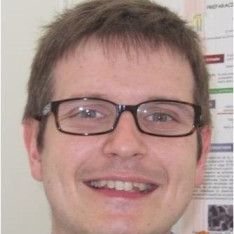Technology & Engineering Education
A special issue of Sustainability (ISSN 2071-1050). This special issue belongs to the section "Sustainable Education and Approaches".
Deadline for manuscript submissions: closed (15 November 2019) | Viewed by 61885
Special Issue Editors
Interests: engineering projects; SDGs; sustainability; machine learning; smart cities; product design
Special Issues, Collections and Topics in MDPI journals
Interests: science education; affective domain; active learning methodologies; education for sustainaibility; integral sustainability paradigm
Special Issues, Collections and Topics in MDPI journals
Special Issue Information
Dear Colleagues,
Two of the main challenges facing humanity are the care of the environment and the reduction of growing inequality. After the relative success of the Millennium Development Goals (MDG) [1], the Sustainable Development Goals (SDG) proposed by United Nations constitute an agenda for the period between 2015 and 2030 [2]. Without doubt, education was a leverage factor in the achievement of the Millennium Development Goals, and today is a key factor for compliance with the SDGs. Firstly, because some of them are directly related to education, (for example, SDG number 4) and secondly because many of them require technical training for their attainment [3]. Thus, UNESCO has established a set of learning objectives to contribute to the achievement of SDG [4].
Clearly, technology and engineering are closely linked with sustainability and the achievement of SDGs [5]. In fact, some authors have criticized the overly technological nature of the SDGs [6]. It may be interesting to analyze new experiences and methodologies that explore the relationship between engineering, education, and technology and sustainability in order to train professionals and citizens who are more aware of and can contribute to achieving SDGs.
This Special Issue aims to analyze educational experiences in the field of sustainability in engineering and technology education at different educational levels, from primary education to university levels. It is open to formal and informal education initiatives, to the development of courses on sustainability or to the development of competence across the curriculum. Theoretical reflections that address the relationship between engineering and technology education and sustainability are also welcome.
References
- Sachs, J. D. From Millennium Development Goals to Sustainable Development Goals. Lancet 2012, 379, 2206–2211, doi:10.1016/S0140-6736(12)60685-0.
- General Assembly of United Nations Transforming our world: the 2030 Agenda for Sustainable Development. Resolution adopted by the General Assembly on 25 September 2015 Available online: http://www.un.org/ga/search/view_doc.asp?symbol=A/RES/70/1&Lang=E (accessed on Nov 7, 2018).
- Dlouhá, J.; Pospíšilová, M. Education for Sustainable Development Goals in public debate: The importance of participatory research in reflecting and supporting the consultation process in developing a vision for Czech education. J. Clean. Prod. 2018, 172, 4314–4327, doi:10.1016/J.JCLEPRO.2017.06.145.
- UNESCO Education for Sustainable Development Goals. Learning Objectives Available online: http://unesdoc.unesco.org/images/0024/002474/247444e.pdf (accessed on Nov 7, 2018).
- Pérez-Foguet, A.; Lazzarini, B.; Giné, R.; Velo, E.; Boni, A.; Sierra, M.; Zolezzi, G.; Trimingham, R. Promoting sustainable human development in engineering: Assessment of online courses within continuing professional development strategies. J. Clean. Prod. 2018, 172, 4286–4302, doi:https://0-doi-org.brum.beds.ac.uk/10.1016/j.jclepro.2017.06.244.
- Boni, A.; Lopez-Fogues, A.; Walker, M. Higher education and the post-2015 agenda: a contribution from the human development approach. J. Glob. Ethics 2016, 12, 17–28, doi:10.1080/17449626.2016.1148757.
Dr. Francisco Zamora-Polo
Dr. Jesús Sánchez Martín
Guest Editors
Manuscript Submission Information
Manuscripts should be submitted online at www.mdpi.com by registering and logging in to this website. Once you are registered, click here to go to the submission form. Manuscripts can be submitted until the deadline. All submissions that pass pre-check are peer-reviewed. Accepted papers will be published continuously in the journal (as soon as accepted) and will be listed together on the special issue website. Research articles, review articles as well as short communications are invited. For planned papers, a title and short abstract (about 100 words) can be sent to the Editorial Office for announcement on this website.
Submitted manuscripts should not have been published previously, nor be under consideration for publication elsewhere (except conference proceedings papers). All manuscripts are thoroughly refereed through a single-blind peer-review process. A guide for authors and other relevant information for submission of manuscripts is available on the Instructions for Authors page. Sustainability is an international peer-reviewed open access semimonthly journal published by MDPI.
Please visit the Instructions for Authors page before submitting a manuscript. The Article Processing Charge (APC) for publication in this open access journal is 2400 CHF (Swiss Francs). Submitted papers should be well formatted and use good English. Authors may use MDPI's English editing service prior to publication or during author revisions.
Keywords
- Engineering Education
- Technology Education
- Primary Education
- Secondary School
- Higher Education
- New methodologies in education
- Sustainable Development Goals
- Cooperation for Development






